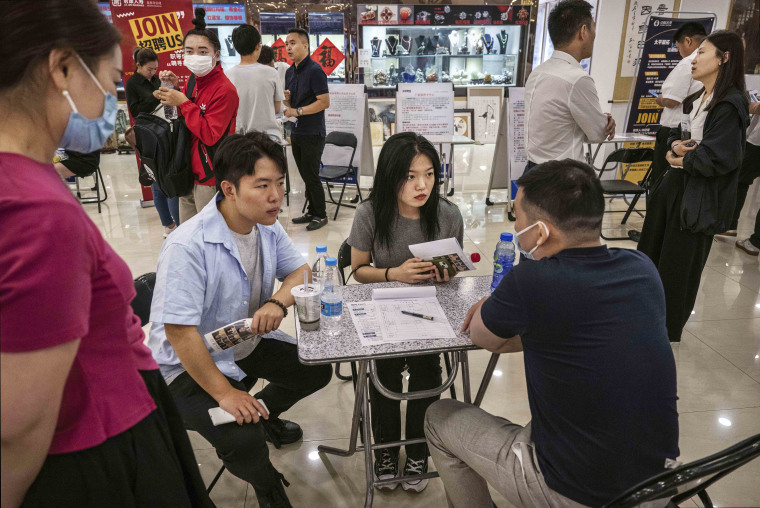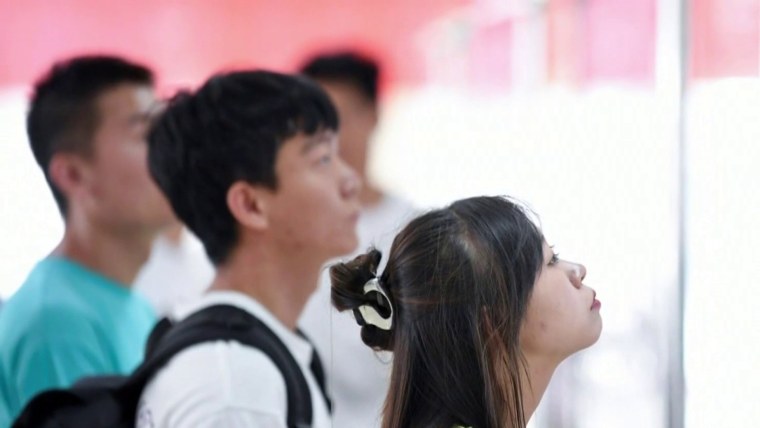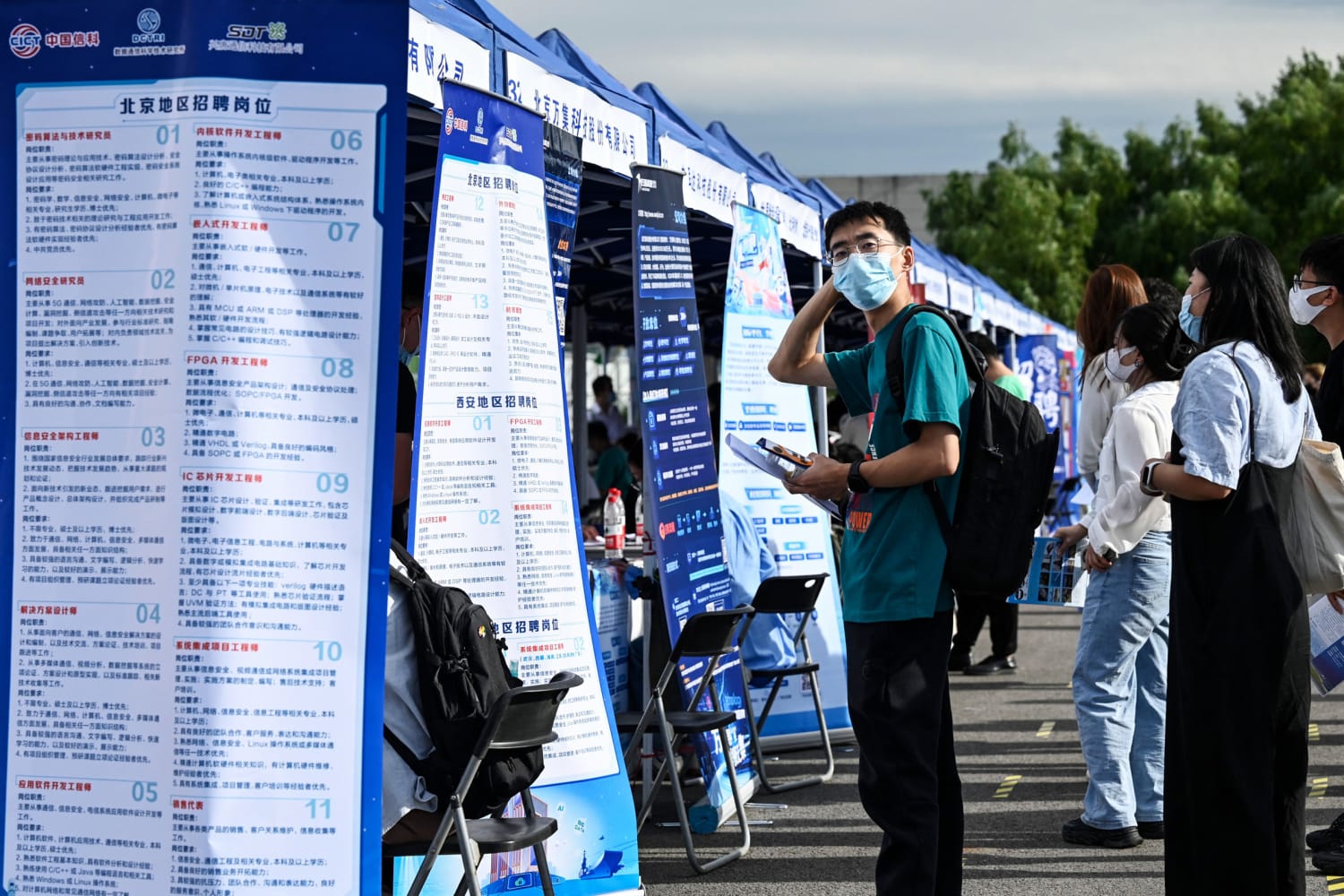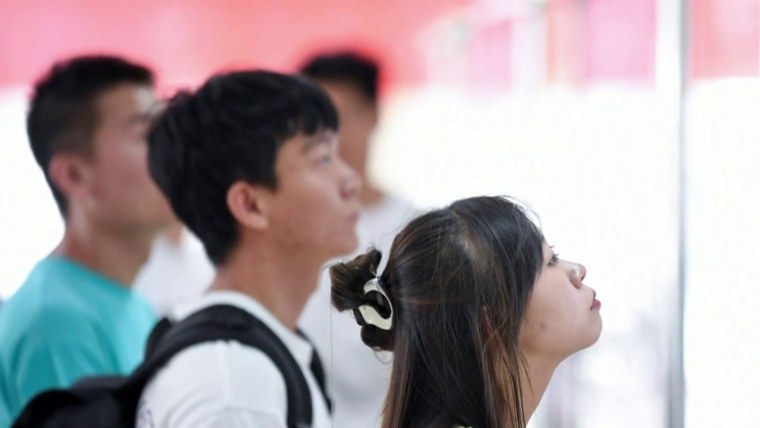HONG KONG — Chinese officials announced Tuesday that they would temporarily stop publishing the youth unemployment rate, which has reached record highs in recent months, saying the way it is calculated needs refinement.
Youth unemployment is just one of the problems facing China, the world’s second-largest economy after the United States, as it recovers more slowly than expected from three years of pandemic isolation. The urban unemployment rate for people ages 16 to 24 has ratcheted up steadily from month to month this year, hitting a record 21.3% in June — four times the overall jobless figure.
The employment situation among college graduates in China is “generally stable,” Fu Linghui, spokesperson for the National Bureau of Statistics, said at a news conference in Beijing.
“Most university graduates have already confirmed their employment destination,” he said, adding that the graduate employment rate is “slightly higher” than the same period last year.
The decision to withhold monthly data on youth unemployment met with backlash online, where social media users accused officials of trying to bury bad news.
“Put in a clearer way, the current data looks very bad, so don’t look at it for now,” one user wrote on Weibo, a microblogging site, where the relevant hashtag drew more than 180 million views.
“The National Bureau of Statistics is being capricious,” another comment read. “The unemployment rate is an important indicator of national economic development and should not be arbitrarily decided whether to release or not. The public has the right to know the truth.”
Young unemployed graduates also expressed anger over the decision.
“They are lying every day,” Cassie Sun, 24, who has been unemployed since graduating two years ago, told NBC News on Tuesday.
Young people in China face fierce competition for work as universities churn out more graduates each year into an economy without enough jobs that match their skills. They have also been hampered by regulatory crackdowns on sectors where new graduates often find jobs, including education, real estate and tech.
Facing bleak prospects in China’s major cities, about 47% of graduates returned to their hometowns within six months of graduation last year, up from 43% in 2018, the state-run Jiemian News reported last week, citing a survey by an education research organization.
Countries such as Italy and Sweden have reported youth unemployment figures similar to China’s. But China’s true rate could be even higher, up to 46.5%, if it includes those who are neither in school nor actively looking for work, a Chinese professor suggested last month in an article in respected Chinese financial magazine Caixin that was later censored.

Fu said the release of unemployment data for youth as well as other age groups had been suspended because “the economy and society are constantly developing and changing, statistics need to be constantly improved, and labor force survey statistics need to be further improved and optimized.”
He did not say how long the suspension would last.
Fu said that in 2022, China had 96 million people between the ages of 16 and 24, over 65 million of whom were students. He said more research was needed to determine which age range to use and whether students seeking jobs before graduation should be included in the unemployment rate.
Other July data released on Tuesday illustrated China’s economic headwinds. Retail sales, industrial production and fixed asset investment all rose less than forecast. The urban unemployment rate was 5.3% in July, up from 5.2% in June.
Earlier Tuesday, the Chinese central bank unexpectedly cut key rates for the second time in three months in an effort to boost the economy.
Last week, the National Bureau of Statistics reported a fall in July exports and imports that was much faster than expected. It also said consumer prices declined in July for the first time in two years, raising fears of deflation. Fu on Tuesday denied that China had a deflation problem, describing it as a “regular fluctuation” in prices.
Source: | This article originally belongs to Nbcnews.com











